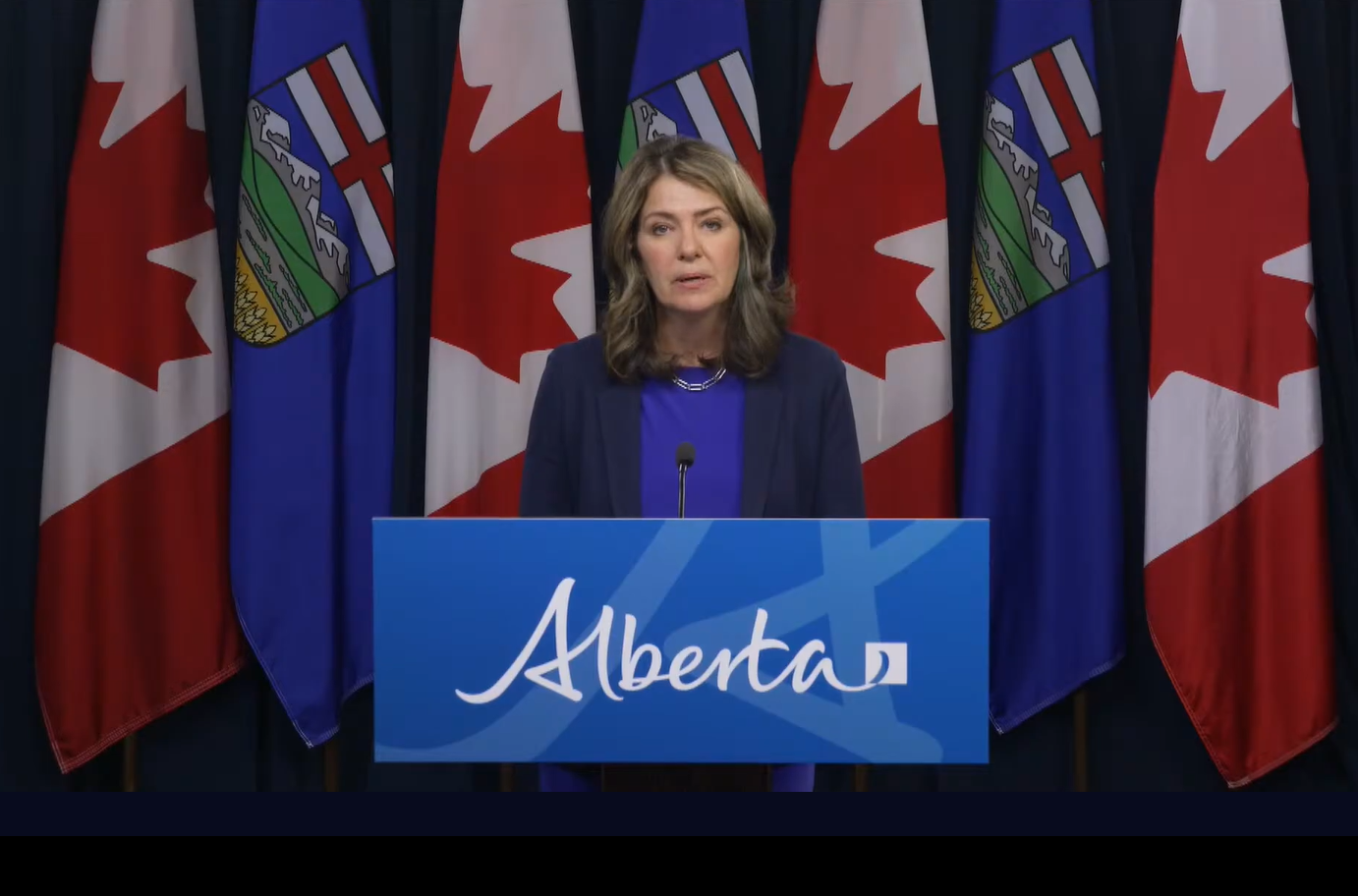Premier Danielle Smith says Alberta is moving forward with talks to secure a better deal with Ottawa, but made it clear that her government will not be pushing for Alberta to leave Canada.
Today, Smith said she recently met with Prime Minister Mark Carney to discuss federal policies that she believes have harmed Alberta’s economy over the past decade. She described the meeting as a “positive first step,” but said much more work is needed.
“We spoke at length about the policies and legislation that are holding back Alberta’s economy,” Smith said. “It will take tremendous effort and cooperation to repair the damage.”
Smith announced the formation of a special negotiating team that will represent the province in discussions with the federal government. The team’s goal is to create a new “Alberta Accord” focused on fairer treatment for the province, including:
- Guaranteed access to ports on all three coasts for Alberta’s energy exports
- Repeal of Bill C-69 and federal net-zero electricity rules
- Provincial consent before any federal export taxes
- Equal per capita federal transfers, similar to Quebec, Ontario and B.C.
Smith also introduced the Alberta Next panel, which will hold public consultations from May to October. These consultations could lead to a referendum in 2026 on reforms proposed by Albertans.
While Smith repeated that she does not support Alberta separating from Canada, she defended recent changes to referendum rules that make it easier for citizens to trigger a province-wide vote.
“If you genuinely want citizens to be able to identify issues they care about and put it forward to the people, you have to have a reasonable signature threshold,” Smith said.
She emphasized that any referendum on separation would have to be started by citizens — not the government — and would require 177,000 signatures to proceed.
“I do not support separatism myself,” she said. “I support a strong, sovereign Alberta within a united Canada.”
Smith faced questions about the potential impact of a referendum on Indigenous treaty rights. Treaty Chiefs from across Alberta have said a vote on separation would violate agreements with the Crown.
“You can’t vote away treaty rights,” Smith said. “This is about Alberta’s relationship with Ottawa. We respect that First Nations are sovereign jurisdictions in their own right.”
When asked whether referendum talk could harm investment and business confidence, Smith said the discussion is being driven by public frustration.
“There’s a lot of anger out there,” she said. “I think it’s my job to make sure the debate is respectful… and not to demonize anyone who has a different view.”
She added that she remains hopeful about reaching an agreement with Prime Minister Carney.
“I’m not walking into negotiations expecting failure,” she said. “We’ve already seen signs of change. The carbon tax was dropped right after the election. That shows some willingness to compromise.”
Asked directly whether she would sponsor a vote on Alberta independence, Smith said no.
“We would not be bringing forward a question on independence,” she said. “It would be up to citizens.”
She also pushed back on the idea that her government is encouraging separation. “All we’ve done is put a clear process in place so Albertans can raise issues they care about.”
Smith was also asked about a reported connection between Justice Minister Mickey Amery and a businessman under investigation. She denied any conflict of interest.
“Minister Amery has made no decisions that would impact the person in question,” Smith said. “He is in no conflict of interest.”
With six months of negotiations and consultations planned, Smith said she is focused on finding common ground with the federal government.
“My marching orders are to try,” she said. “If we can reach a fair deal, that will help calm the anger and build a stronger Canada that includes a stronger Alberta.”

